5 SaaS Email Marketing Campaigns for Higher Conversion Rates
You’d probably agree with me when I say that SaaS marketing is different from traditional marketing. SaaS marketing is almost entirely digital, the amount of product licenses you can sell are endless, and sales can happen extremely fast. Just a few clicks if you’re lucky.
But as a SaaS marketer, you don’t want to be lucky, you want to be smart. And if you know anything about selling software as a service, you know that email marketing can help.
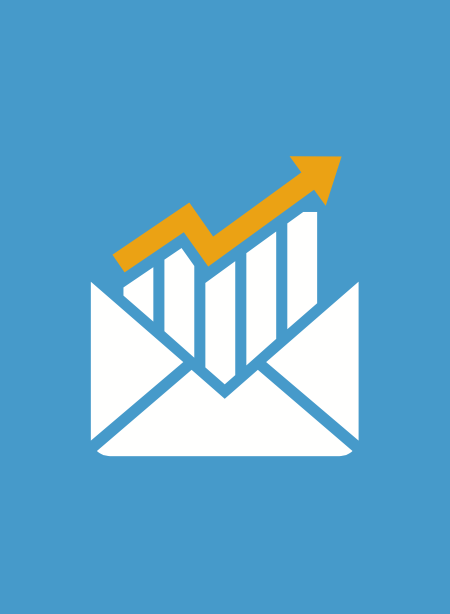
Today I’m going to outline five distinct SaaS email marketing campaigns that will help you with your goal of increasing your conversion rates and taking visitors, to trialists, to premium users.
The SaaS Sales Funnel
Before we get into the SaaS marketing emails let’s look at the traditional SaaS funnel.
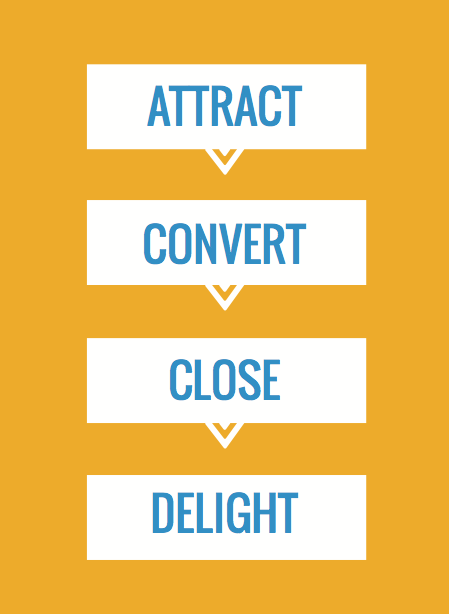
Before we get into the SaaS marketing emails let’s look at the traditional SaaS funnel.
If this looks anything like your growth funnel, you should probably have some customer behavior type emails for each of the steps. The goal of these emails is to move your leads down the funnel, through the sale, and to a step many overlook, to retention.
Why is awareness of this funnel so important?
Knowing which stage in your funnel your SaaS prospect is in helps you create the right messages at the right time. As you understand your prospect and how they move through the different stages of your funnel, you’ll also set different SaaS email marketing goals depending on your customer’s relationship with your brand.
SaaS Sales Funnel Examples: Sweet Definitions of Customer Relations with Your Brand
Your software company probably has a nice bucket for the types of customers you have and the messaging you might want to create around them. These buckets are defined by their behavior with your brand.
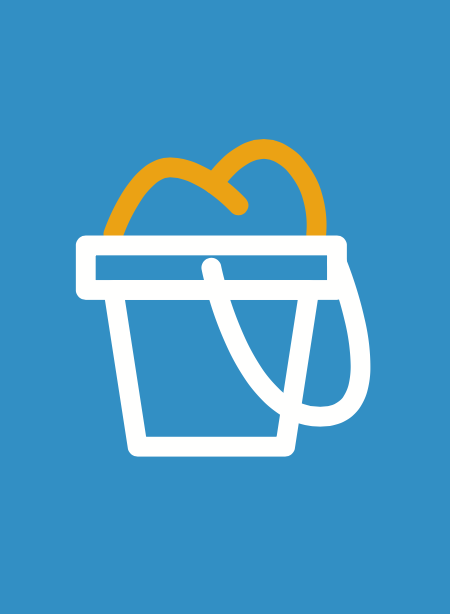
Most software companies also focus heavily on customer acquisition and moving prospects into their sales funnel, through the brand awareness stage on to the trial stage, and beyond.
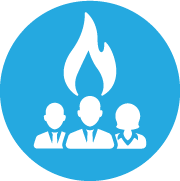
Hot Prospects
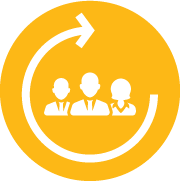
Active Trialists
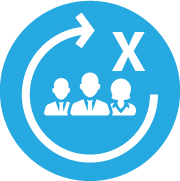
Inactive Trialists
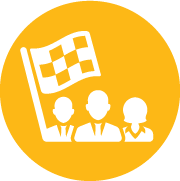
Active Users
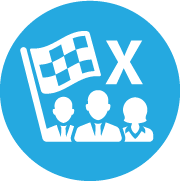
Inactive Users
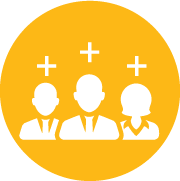
Self-Serve Upgrades

ATTRACT
Hot Prospects
These are users who have visited your site more than three times and did something promising like visited your pricing or demo page more than one time in the last 30 days.

CONVERT
Active Trialists
Users who signed-up (and have provided their emails or more) in the last 14 days AND uploaded contacts to the software.
CONVERT
Inactive Trialists
Users who signed-up (and have provided their emails or more) within the last 30 days but have not logged-in to activate their accounts.

CLOSE
Active Users
Paying users who have logged in within the last seven days.

CLOSE
Inactive Users
Paying users who have not logged in within the last 30 days.

DELIGHT
Self-Serve Upgrades
Paying users who have upgraded to new product or feature sets within the last 30 days.
These are just a few of the many examples of users of modern SaaS businesses. For the most part, these define the entire sales cycle, which is why it is so important to use SaaS email marketing to communicate with each of them.
The SaaS Email Marketing Messaging Framework
As we have seen, there are many types of messages you can craft based on the Attract, Convert, Close, Delight stages. Here is a visual of how we want to drive customer engagement as we take someone from Attract to Delight:
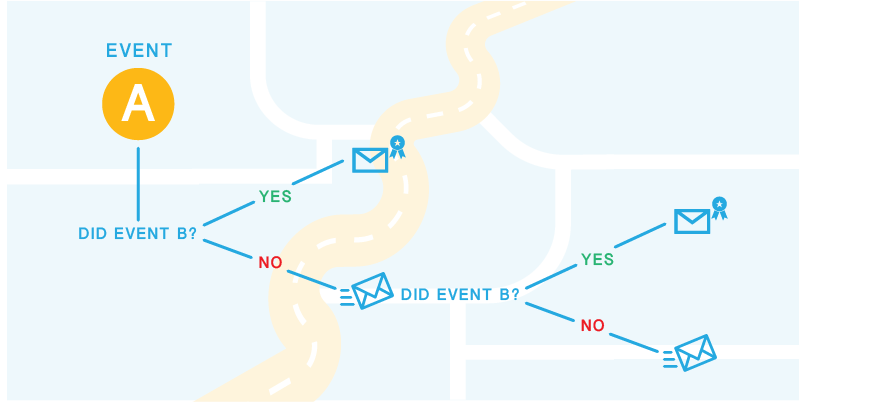
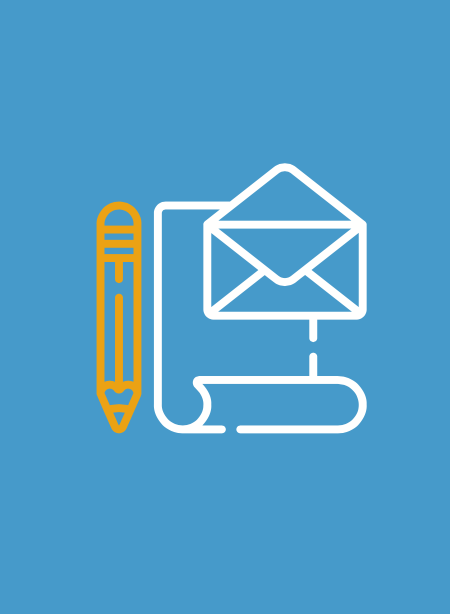
Before we can move on to new messaging, we first want to ensure a customer has taken the steps needed to get there. These messages are based on the behavior, either positive or negative, of a customer. You can get really sophisticated with this type of messaging, but the process of this messaging framework is easy to understand.
5 SaaS Email Marketing Campaigns for Moving Customers Down Your Funnel
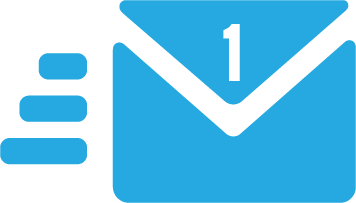
Acquisition Email
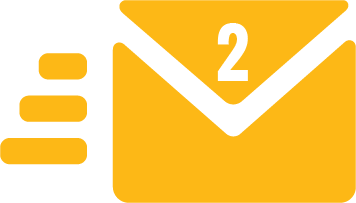
Free Trial Activation
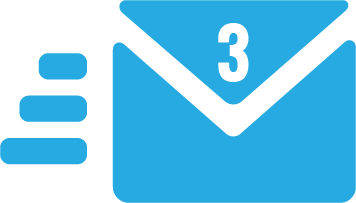
Freemium User Activation
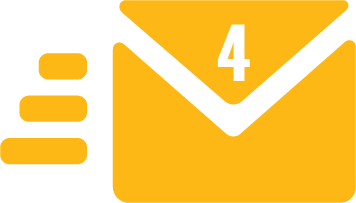
Freemium User Upgrade
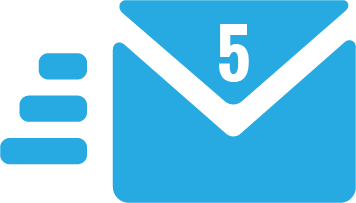
Delight

Acquisition Email
The Acquisition Email is at the top of your funnel. Your SaaS’ definition of “acquisition” may be different from the guy down the street. These days, “acquisition” can mean anything from an email earned from a free eBook, when someone signs up for your blog, or a hotter prospect who has signed up for a free trial. Regardless, you will need someone’s email before you can use it in your campaign.

Campaign Goal: Move prospect from email prospect to sign-up.

Campaign Kicks-off When: Prospect has visited the demo/trial page more than twice AND has visited your pricing page at least once in the last 30 days. A more aggressive approach would kick this off once you get an email from any source.

Messaging Strategy: These prospects are still very much in the information-gathering stage and are yet to have committed to anything. They are probably doing the same thing on your competitor’s site. If your emails help them determine why you are a better fit, you’ll have a better chance of moving them down your funnel.

The Acquisition Email Flow
| CADENCE | CONTENT | |
|---|---|---|
| Email 1: Thank you for your interest |
Immediately after sign-up | Thank the prospect for their interest and lets them know WHY they need your software |
| Follow-up 1: Sell USP |
2 days after Message 1 IF prospect has not signed up |
Discuss the unique selling proposition of your product and specify benefits |
| Follow-up 2: CEO mission statement |
1 day after Follow-up 1 IF prospect has not signed up |
Check-in from CEO thanking them and discussing why the software was created and the problems it solves. Should have no CTA. |
| Follow-up 3: Benefits overview |
2 days after Follow-up 2 IF prospect has not signed up |
Go over all the features AND benefits to the user |
| Feedback | 15 days after Follow-up 3 IF prospect has not signed up |
Personalized email from CEO or head of marketing looking for feedback on why signup never occurred |

Free Trial Activation
Free trials, as opposed to freemium (more on that next), are used generate value within a given period of time (usually 7, 14, or 30 days). The idea is that after using the software, the prospect will be hooked and upgrade before the trial ends.
Use Free Trial Activation emails to your advantage by playing to the expiration date of the trial itself.

Campaign Goal: Get prospects to use software enough to get value and convert to paid upgrades.

Campaign Kicks-off When: Prospect signs up for trial.

Messaging Strategy: Use the cadence of messages to your advantage by being frequent with your messaging. The users are “on-the-clock” so to speak, so don’t be afraid to use urgency to your advantage.

Free Trial Activation Email Flow
| CADENCE | CONTENT | |
|---|---|---|
| Email 1: Thank you for your interest |
Immediately after sign-up | Thank prospect for signing up for the trial. Sends them a checklist or video of what the exact next steps are. |
| Follow-up 1: Value reminder |
1 day after Message 1 IF prospect has not ‘activated’ account |
Discuss the main focus of software and how it will help them. Trial period reminder. |
| Follow-up 2: CEO mission statement |
1 day after Follow-up 1 IF prospect has not ‘activated’ account |
Check-in from CEO thanking them and discussing why the software was created and why it was created. Should have no CTA. |
| Follow-up 3: Encouragement |
1 day after Follow-up 2 IF prospect has not ‘activated’ account |
Remind prospect it only takes ‘X’ amount of time to activate an account and get value. Trial period reminder. |
| Follow-up 4: Encouraging nudge |
2 days after Follow-up 3 IF prospect has not ‘activated’ account |
Another encouraging nudge to activate an account. Highlight time left in trial. |
| Follow-up 5: Trial expiration reminder |
13 days after sign-up IF prospect has not ‘activated’ account |
The trial ends tomorrow and a sense of missing out should be established. Offer extension. |
| Follow-up 6: Trial expiration |
15 days after sign-up IF prospect has not ‘activated’ account |
Let the user know their trial is over. Encourage them to contact sales to extend and showcase testimonials. |
| Feedback | 30 days after sign-up IF prospect has not ‘activated’ account |
Personalized email from CEO or head of marketing looking for feedback on why a prospect didn’t move ahead with your product. Make it easy to respond, like a short multiple-choice survey. |
| Long-term Nurture | 90 days after sign-up IF prospect has not ‘activated’ account |
Don’t rule out users who signed up but didn’t move forward. Put them on long-term nurture or at the very least, add them to your blog email list. |

Freemium User Activation
The email campaign for freemium users is like that of Free Trialists, with the exception that these users don’t have the clock working against them. Freemium users need to find value very quickly though, as getting them to use your product is what leads them to eventual upgrades.

Campaign Goal: Get prospects to use software immediately and frequently.

Campaign Kicks-off When: Prospect signs up for free account.

Messaging Strategy: Freemium users know that they are only getting a portion of the product that a paying customer gets, but still need to find value in the software. The messaging needs to reflect the value add of the product to encourage immediate and frequent use, meaning your psychology should make them feel like they are missing out if they don’t activate the software to get all the benefits.

Freemium User Activation Email Flow
| CADENCE | CONTENT | |
|---|---|---|
| Email 1: Thank you for your interest |
Immediately after sign-up | Thank prospect for signing up for the freemium model. Discuss a high-level view of the benefits of the software. |
| Follow-up 1: Your first step |
Same day as Email 1 IF prospect has not ‘activated’ account |
Walk your user down the path of the first steps to start using the software. |
| Follow-up 2: Social proof |
1 day after Follow-up 1 IF prospect has not ‘activated’ account |
Testimonials combined with brief case studies of how users get the value of your software. |
| Follow-up 3: Encouragement |
1 day after Follow-up 2 IF prospect has not ‘activated’ account |
Remind prospect it only takes ‘X’ amount of time to activate an account and get value. Let them know the value they’re missing out on. |
| Follow-up 4: Discuss features |
2 days after Follow-up 3 IF prospect has not ‘activated’ account |
Perhaps the user has not found time to activate. Try to find another angle by discussing other secondary features. |
| Follow-up 5: Personalized ask |
30 days after sign-up IF prospect has not ‘activated’ account |
Personalized email from CEO or head of marketing looking for feedback on why the prospect has not activated. |
| Long-term Nurture | 60 days after sign-up IF prospect has not ‘activated’ account |
Don’t rule out users who signed up but didn’t move forward. Put them on long-term nurture or at the very least, add them to your blog email list. |

Freemium User Upgrade to Paying Account
It is likely that you already have an upgrade section inside your software. However, it is more likely that you’ll get people to take notice of this action via email than through their dashboards. But you don’t want to promote upgrade actions too soon; users need time to use your software to get value out of it. Value is what will lead them to a sale.
Thus, you’ll want to create triggers for email automation that are tied to account usage and upgrade triggers. These can be volume triggers, feature triggers, account triggers or some combination of the three. No matter the trigger for the upgrade messaging, you’ll want to try and define when a user might want to pay more, when they find value based on your metrics, and how to target these engaged users so you reach them at the right time.

Campaign Goal: Get freemium users to convert to paid users.

Campaign Kicks-off When: Prospect is activated and meets a defined upgrade trigger.

Messaging Strategy: Your messaging will depend entirely on the type of software you are offering. If you have software where the freemium usage is limited by volume (like Dropbox), you want to create a trigger to deploy emails around capacity limits. If you have feature-based software, you’ll need to promote the features they’re missing out on. These emails will be spread out more than the others.

Freemium User Upgrade to Paying Account Email Flow
| CADENCE | CONTENT | |
|---|---|---|
| Email 1: Intro to premium options |
Once a prospect has been activated AND logged into the software | Commend them on making a smart decision, remind them of a value play, and gently mention premium features with soft CTA. |
| Follow-up 1: Social proof |
5 days after Message 1 IF prospect has not upgraded AND has logged in more than once in the last 5 days |
User has demonstrated interest, so feed them a case study with solid metrics related to premium software usage. |
| Follow-up 2: Something to lose |
10 days after Follow-up 1 IF prospect has not upgraded AND has logged in more than once in the last 5 days |
Offer a temporary promotion with special pricing to incentivize people to a sale while creating urgency. |
| Follow-up 3: Benefits overview |
30 days after Follow-up 2 IF prospect has not upgraded AND has logged in more than once in the last 5 days |
Don’t rule out users who signed up but didn’t move forward. Put them on long-term nurture or at the very least, add them to your blog email list. |

Delight Paying Customers for Retention
Your paying customers should certainly not be overlooked or ignored once they jump onboard. They need to be kept abreast of new features, valuable content like blogs or whitepapers, company happenings, webinars, events, and conferences.
This can be as simple as using your blog to announce all new features and updates, and simply having all customers on the blog email list.

Campaign Goal: Continue to engage paying customers with value adds.

Campaign Kicks-off When: Customer begins paying.

Messaging Strategy: As every company adds new features, publishes new content, and announces updates at their own pace, the approaches for delighting customers will vary. The key here is consistency and to let your customer know you are continually providing value or working on things that provide more value to their lives.

Delight Paying Customers for Retention Email Flow
| CADENCE | CONTENT | |
|---|---|---|
| Email 1: Survey |
10 days after started paying AND has shown activity | Send over survey to give feedback on the software, customer service, wants/needs |
| Follow-up 1: Latest blogs |
As published or rounded up once a month | An email highlighting one blog and showcasing several others |
| Follow-up 2: Feature promotion |
1 month before rollout | Introduce new feature, sell benefits, and give an estimate of the rollout |
| Follow-up 3: Feature rollout |
30 days after Follow-up 2 IF featured has been rolled out |
Announce rollout of a new feature, explain benefits, show how to use it |
| Feedback | 15 days after Follow-up 3 IF prospect has not used the new feature |
Personalized email from CEO or head of marketing looking for feedback on software |
Higher Conversion Rates Start with Customer Engagement
As we have seen, the touchpoints for customer engagement vary based on the behavior and lifecycle of your customers. With this guide, you’ll be able to formulate some meaningful touchpoints based on the customer journey and drive your customers down a path to financial prosperity.
While these email marketing campaigns are just guides, they will help you think subjectively about your customer’s journey, what may be holding them back from moving forward with your product, and how you can improve their hesitation. While you improve this journey, your products and processes may change as well. That is perfectly ok and to be expected.
Just like your software, your marketing will continually be refined, and you may find that you have many more marketing campaigns for different types of prospects, leads, or paying customers.
Have fun with your email messaging and show your personality. If you created a great product you can showcase that in your messages. If you need help with your emails or your overall SaaS marketing campaign, we can help with that too.





